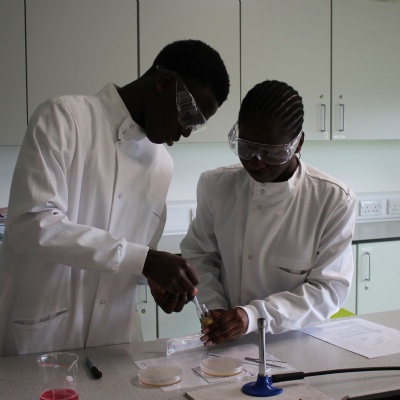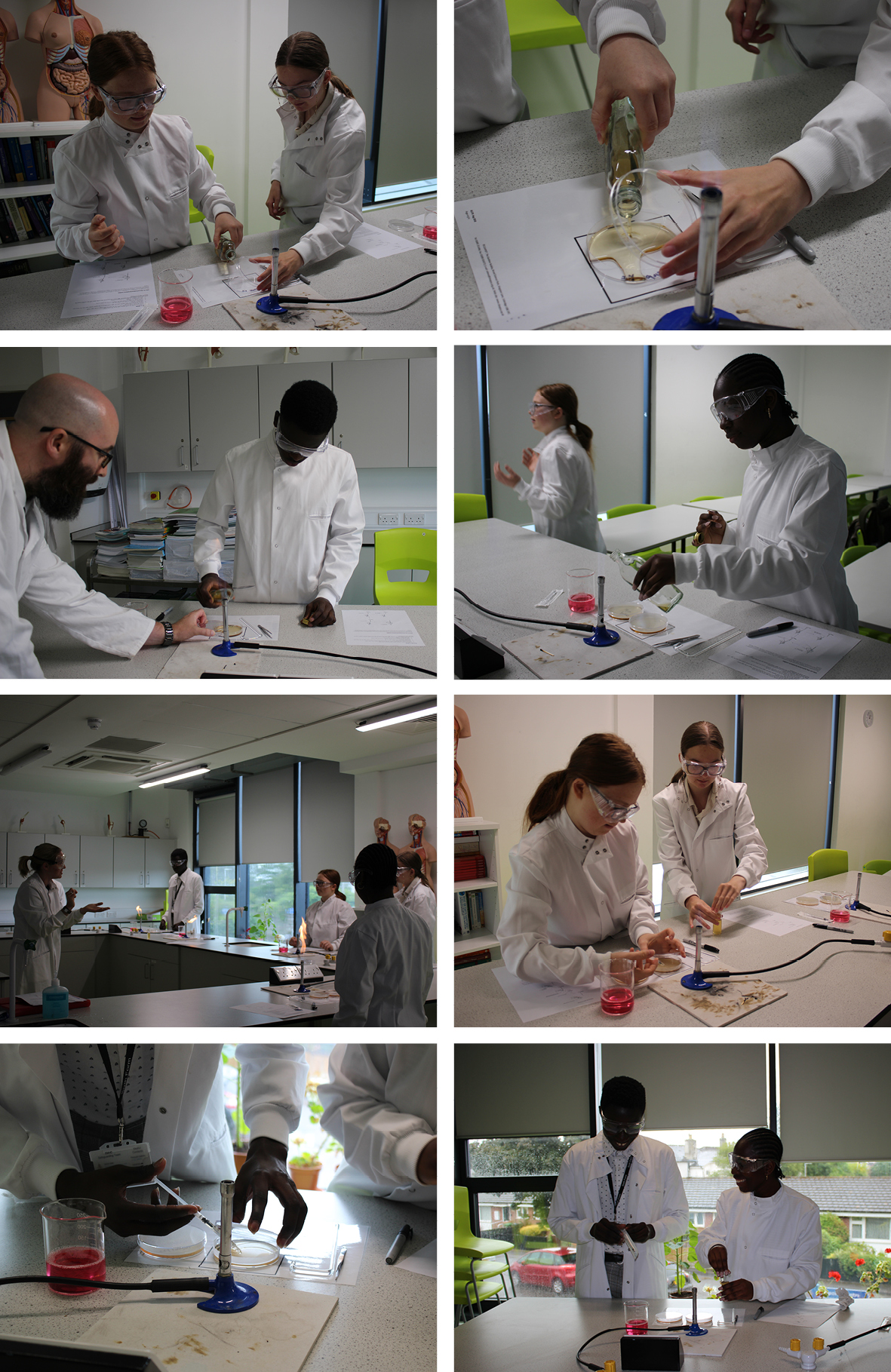Exploring Antibiotic Resistance: Yr 12 Biologists Conduct Fascinating Practical

In a captivating practical session, our Year 12 A-Level biologists delved into the world of antibiotic resistance by conducting an experiment that shed light on the effectiveness of various antibiotics against the Micrococcus luteus bacteria.
This hands-on activity not only honed their scientific skills but also emphasised the importance of following precise methods, practising aseptic techniques, and fostering teamwork.
The practical began with students pouring their own agar plates using the appropriate method, ensuring accuracy and precision. Maintaining a high level of cleanliness was paramount to prevent any unwanted contamination from other microorganisms. Students meticulously spread the Micrococcus luteus bacteria onto the plates, ensuring the sample remained uncontaminated. This step showcased their understanding of aseptic techniques, as they strove to create an environment conducive to accurate testing.
The final stage of the experiment involved placing antibiotic rings on the dishes. This allowed the students to observe and compare the effects of different antibiotics on the growth and survival of the Micrococcus luteus bacteria. By analysing the plates after incubation for a few days, the students will be able to review the results and measure zones of inhibition around the antibiotic discs. This analysis will provide valuable insights into which antibiotic is most effective in destroying the Micrococcus luteus bacteria and combating antibiotic resistance.
Additionally, the experiment serves as an opportunity to assess the students' individual aseptic techniques. By observing the level of contamination with unwanted microorganisms on their plates, it will be possible to identify the student who demonstrated the best aseptic technique. This aspect not only adds a competitive element to the practical but also highlights the importance of precise and careful laboratory practices.
The results of this experiment hold great significance, as they contribute to our understanding of antibiotic resistance and the efficacy of different antibiotics. With the rise of antibiotic-resistant bacteria posing a significant global health challenge, experiments like these help researchers and scientists develop strategies to combat this issue effectively.
As the incubation period commences and the plates rest, our Year 12 biologists eagerly anticipate the results. Their dedication and effort in conducting this practical will undoubtedly yield valuable insights into antibiotic resistance and contribute to their scientific knowledge.


